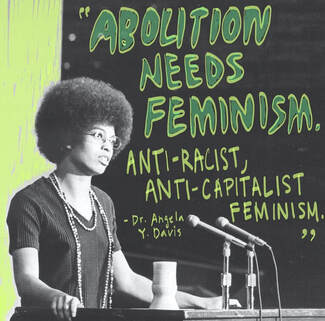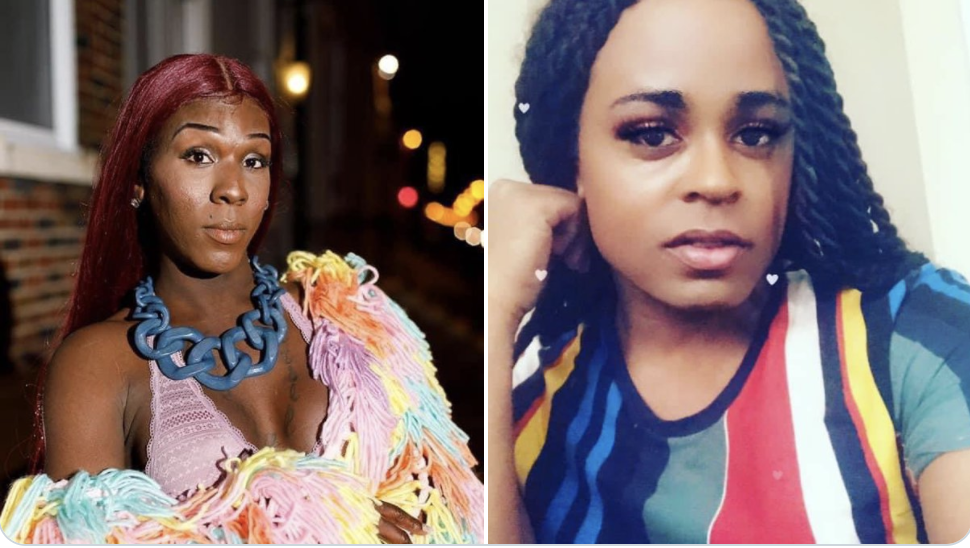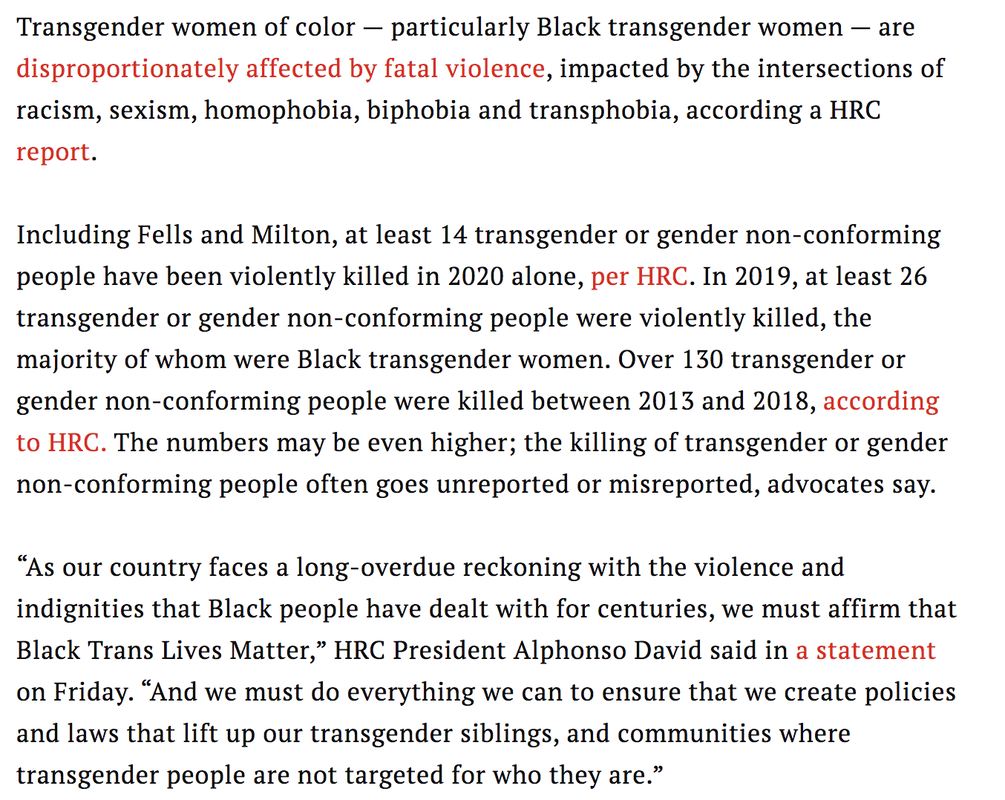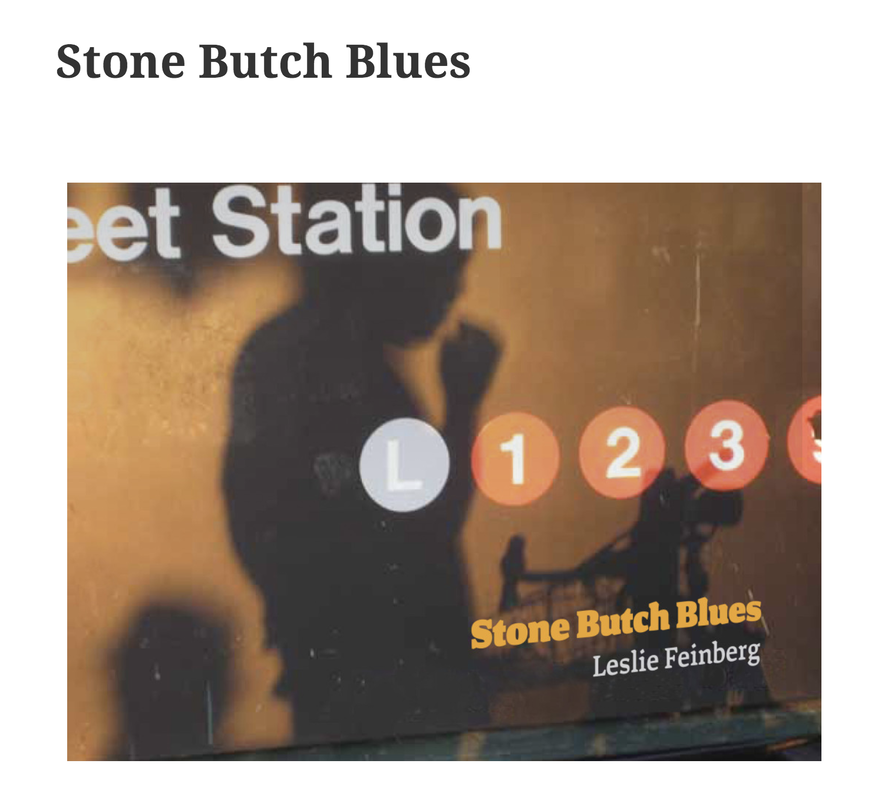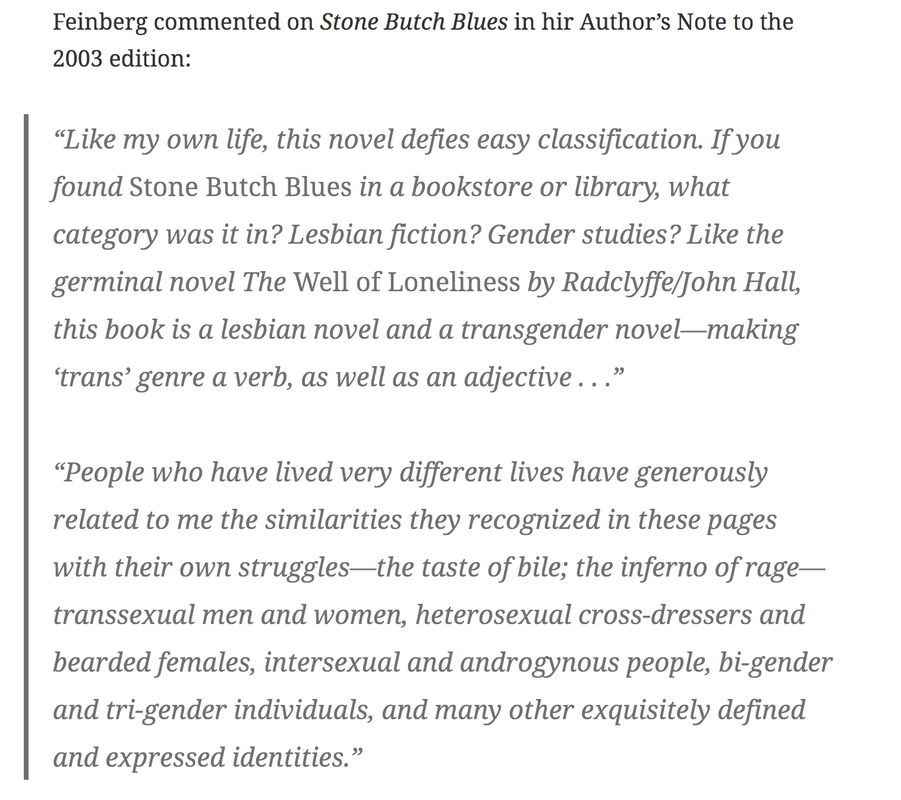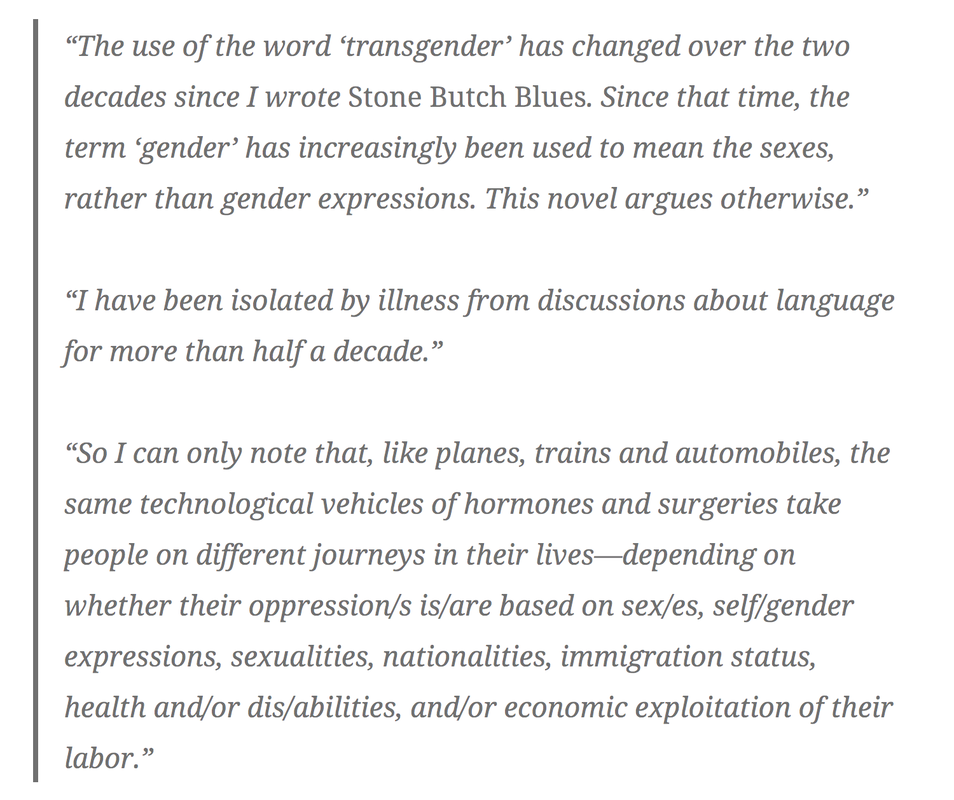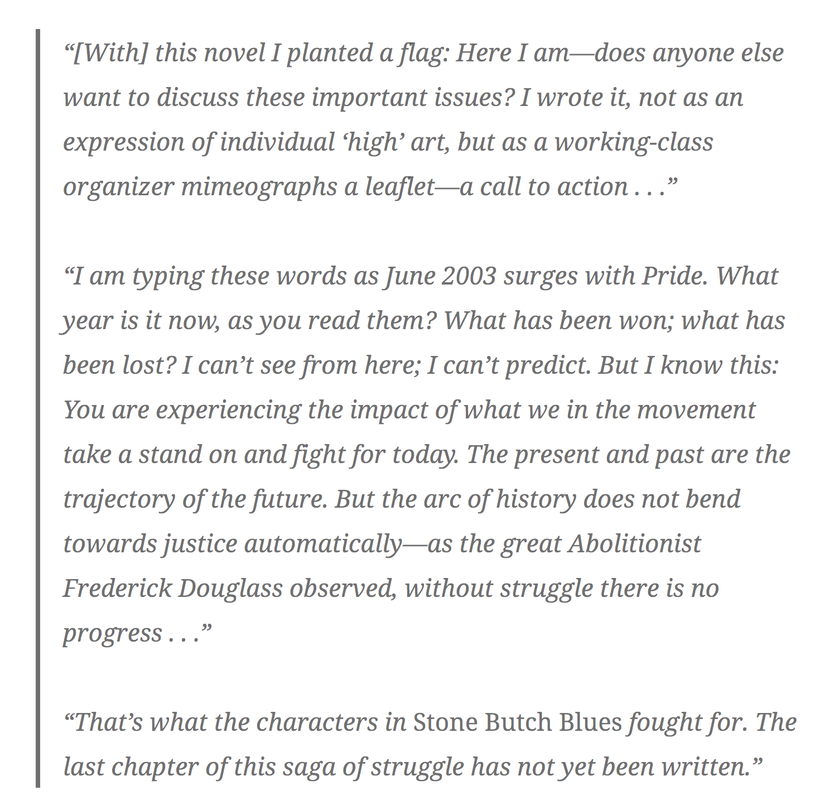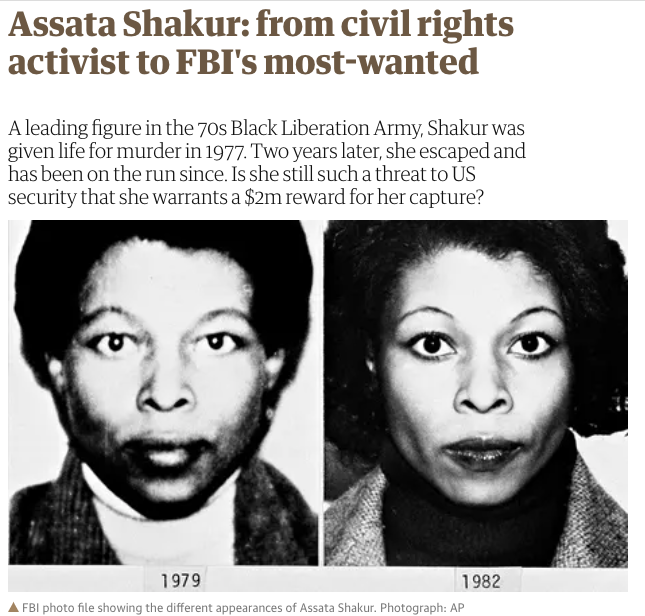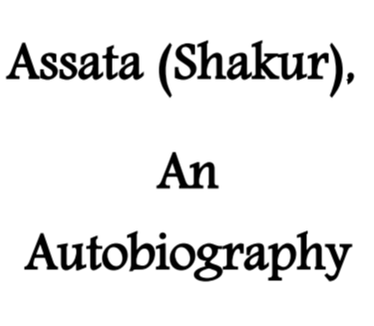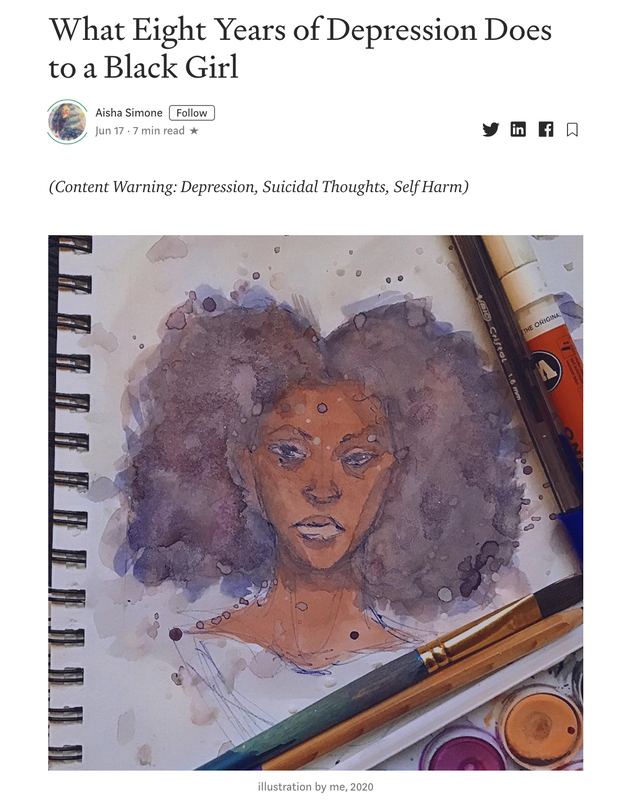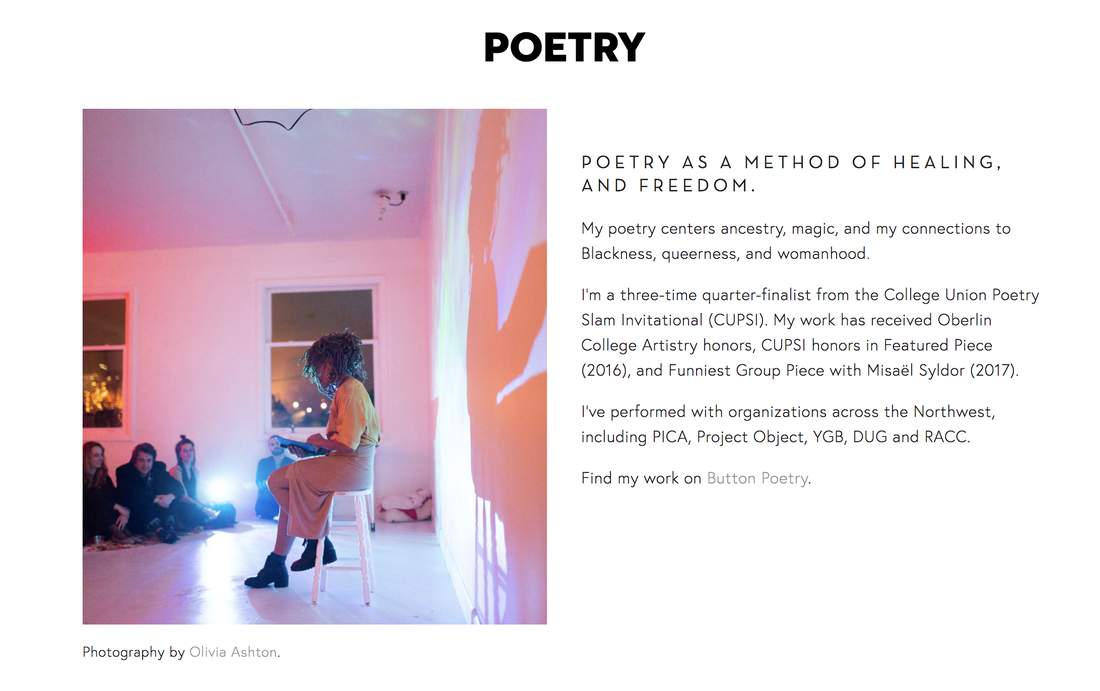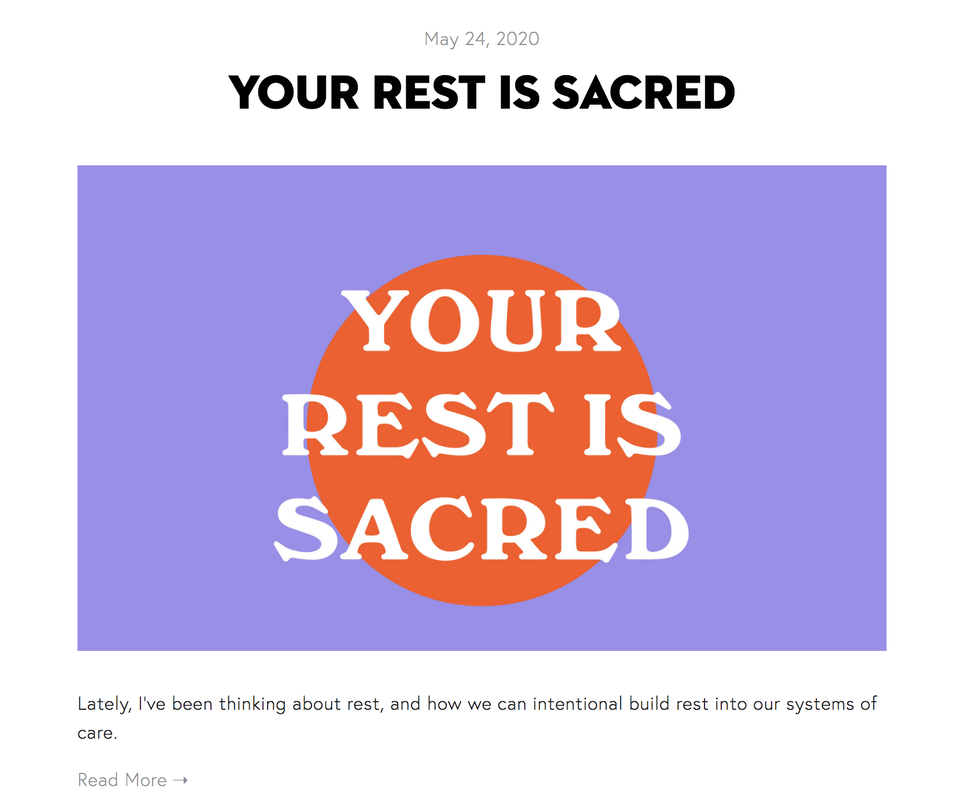When we chant and repeat the phrase "Black Lives Matter," we must acknowledge that this means ALL Black lives. Black people are not liberated until we are ALL liberated. We must hold those who inflict violence upon members of our community accountable even when those committing acts of violence are members of our community as well. We must acknowledge that Black women have been continually hurt by the misogyny within the Black community, and that must CHANGE. We must acknowledge that Black Trans women bear the brunt of race and gender violence, and that must CHANGE. We must acknowledge that disabled members of the black community are looked down on, ignored, attacked and that must CHANGE. We must hold ourselves accountable for the protection of Black women and of members of the Black LGBTQ+ community because many of them are on the front lines defending Black lives. Their outcries for justice are indiscriminate, and ours should be as well. We have all seen countless posts recently mourning the deaths of Tony McDade, Riah Milton, Dominique "Rem'mie" Fells, Tete Gulley, Brayla Stone and Oluwatoyin Salau and many, many more. Their lives, and the lives of other Trans and gender non-conforming individuals matter too. Their voices, their ideas, and the strides they have taken for the Black community as a whole matter too. We must reflect on the way our communities have treated and continue to treat Black women, Black LGBTQ+ communities, and black disabled communities so that we can better ourselves. This is by no means comprehensive, and we are still learning as well, but here are some lovely resources to learn and help.
Brayla Stone grew up in the same town as us, she visited the same county fair we did, grew up going to the same grocery stores, driving on the same roads, knowing people that we know. She was from Little Rock, Arkansas, just like us. She was so young. We don't want to create any stickers with her featured on them out of respect for her family and her memory as we don't want to interpret her legacy for our own purposes in any way, but we felt it was important for us to honor her memory as someone who died so horrifically in our own city. A bright young girl from our city got her life taken for being Black and Trans. While we undertake this project, we never personally got to meet her but we will always remember her. We will continue this fight for justice in honor of her bravery, her spirit, and her perseverance in maintaining her true self despite the transphobia and racism prevalent in her communities. We hope to one day see a world where this could never happen again, and we will fight for it, no matter how many lifetimes it takes to achieve it. Rest in Peace, Brayla Stone. #sayhername
Image taken from @tiffanydian on Instagram
you heard Dr. Davis. it's time to reconstruct community support.
"Abolition. Feminism. Now"
you heard Dr. Davis. it's time to reconstruct community support.
"Abolition. Feminism. Now"
PROTECT BLACK WOMXN
|
"Black womxn deserve better. ALL black women. (Yes, Black womxn includes Black trans womxn.) Protect us not because we are someone’s mother, sister, or wife, but because we are SOMEONE. The struggles of Black womxn should not be considered the “subcategories” of Black issues. Read every single word in this post. I sacrificed my mental health to do all the research for this so the least you could do is read it."
|
Photos and information taken from @mengwe on Instagram
Note: The purpose of the X in women to change the word from being just an extension of the word “men”. It has been used in a similar manner as womyn and wimmin, as a rejection of the English-only etymology of 'woman' from Old English wifmon (wife-man). Due to transgender women's perceived exclusion from the usage of these respellings, an "x" is used to "broaden the scope of womanhood," to include them.
PROTEST TRANS LIVES
|
“I am typing these words as June 2003 surges with Pride. What year is it now, as you read them? What has been won; what has been lost? I can’t see from here; I can’t predict. But I know this: You are experiencing the impact of what we in the movement take a stand on and fight for today. The present and past are the trajectory of the future. But the arc of history does not bend towards justice automatically—as the great Abolitionist Frederick Douglass observed, without struggle there is no progress . . .”
“That’s what the characters in Stone Butch Blues fought for. The last chapter of this saga of struggle has not yet been written.” - Leslie Feinberg |
Photos taken from @soyouwanttotalkabout on Instagram
This is NOT debatable
Support Black Trans Women
Do not turn blindly from the violence they face
Riah Milton in Ohio and Dominique “Rem’Mie” Fells in Pennsylvania
Click HERE to Read
Free Book
Stone Butch Blues by Leslie Feinberg
TW: R**e, violence, slurs
an incredibly beautiful, moving book that showcases the struggles, camaraderie, and strength of the LGBTQ+ community in the late 1900's. never forget those who struggled before and their stories. remember not only their tears, pain, and terrors, but also remember their joy, their perseverance, and their power as they strived to be themselves.
Click HERE to read and for more info
Click HERE to read and for more info
from @ghoumama on Instagram
BLM is not a movement for aesthetics or for appearing to do your part...it is a fight to live, to breathe, and to stay healthy as well as unharmed. The small town community I’m from loves to pride itself on being cute & diverse yet Black women have been repeatedly invalidated when they speak out about their traumas, assaults, and negative experiences. In the same parks where families gather to watch fireworks and sing kumbaya, Black women have been attempted to be kidnapped. In the same spaces for recreation where white folk happily spend the day with their dogs and children, I was sexually assaulted. The truth is that Black women have been going missing for decades, and it has gone largely unsung. This shit is not new to us!! Ever since I was little, my mom would watch over me like a hawk and tell me “to watch my back” no matter where I was. I was always more anxious when navigating the world than my white friends and I didn’t always understand why. These are not rarities, these experiences are common and dare I say normal to the black experience. So when we say #protectblackwomen we mean while they’re still living. And when we say #blacklivesmatter we mean #allblacklivesmatter
BLM is not a movement for aesthetics or for appearing to do your part...it is a fight to live, to breathe, and to stay healthy as well as unharmed. The small town community I’m from loves to pride itself on being cute & diverse yet Black women have been repeatedly invalidated when they speak out about their traumas, assaults, and negative experiences. In the same parks where families gather to watch fireworks and sing kumbaya, Black women have been attempted to be kidnapped. In the same spaces for recreation where white folk happily spend the day with their dogs and children, I was sexually assaulted. The truth is that Black women have been going missing for decades, and it has gone largely unsung. This shit is not new to us!! Ever since I was little, my mom would watch over me like a hawk and tell me “to watch my back” no matter where I was. I was always more anxious when navigating the world than my white friends and I didn’t always understand why. These are not rarities, these experiences are common and dare I say normal to the black experience. So when we say #protectblackwomen we mean while they’re still living. And when we say #blacklivesmatter we mean #allblacklivesmatter
Photos taken from @ghoumama on Instagram
Misogynoir
TW: mention of r**e
I have vowed to dismantle the negative image of female blackness that society has forced on me.
We’ve grown up with people telling us that we are less than and we are not deserving but we are the innovators, protectors and intellectuals.
Black women are immensely valuable and if the rest of the world tells us that we’re not, we need to remember how wonderful we are.
The assault and murder of Oluwatoyin has made me reflect on the way black women are victimised and antagonised by the rest of the world; and I know that if everyone stood for us the way we did for them, no other black girls would have their dignity and potential taken away from them.
Photo credits to Deun Ivory , George Lee and Jeremy Rodney-Hall
We’ve grown up with people telling us that we are less than and we are not deserving but we are the innovators, protectors and intellectuals.
Black women are immensely valuable and if the rest of the world tells us that we’re not, we need to remember how wonderful we are.
The assault and murder of Oluwatoyin has made me reflect on the way black women are victimised and antagonised by the rest of the world; and I know that if everyone stood for us the way we did for them, no other black girls would have their dignity and potential taken away from them.
Photo credits to Deun Ivory , George Lee and Jeremy Rodney-Hall
Infographic taken from @michaelabalogun on Instagram
Assata Shakur
Article by Bim Adewunmi
|
Written on the 40th anniversary of Assata Shakur's case that got her sentenced to life in prison, Bim Adewunmi details her life leading up to her radicalization and membership in the Black Liberation Army and her treatment while in prison before her escape.
Very amazing woman, and if you don't know much about her, this article is a good jumping off point! Read her autobiography here.
|
|
Watch Dr. Angela Davis speak at the Dream Defenders' Sunday School Zoom session on Facebook. You can listen to her statement on the non-binary and trans community starting at 50:45. Watch her full statement beginning at 30:34 |
"... So if we want to develop an intersectional perspective, the Trans community is showing us the way. And we need to point to cases such as the murder of Tony McDade for example. But we have to go beyond that and recognize that we support the Trans community precisely because this community has taught us how to challenge that which is totally accepted as normal, and I don't think that we would be where we are today– encouraging ever-larger numbers of people to think within an abolitionist frame- had not the Trans community taught us that it is possible to effectively challenge that which is considered the very foundation of our sense of normalcy. So if it is possible to challenge the gender binary, then we can certainly effectively resist prisons and jails and police." |
Mental Health in Black Women
black girls are allowed to be depressed
|
taken from @artforaisha on Instagram
click here for link to essay "I’ve always wanted to be a writer, and so I’ve finally written my first online essay. It’s about the biggest struggle I face in life, and it contains my own illustrations. Link in bio, and shares appreciated." It is okay to be depressed.
It is okay to feel things. It is okay to not be okay. Black women deserve better. Black women deserve softness. |
This essay was beautiful and whether or not you have had mental health issues, it's a really good read. It made me cry and genuinely expressed feelings associated with depression well and makes you more aware about the issues that black women undergo in a world that expects them to be strong and silent.
ANNIKA HANSTEEN-IZORA
and her website
Annika identifies as a Black Queer Woman, goes by the pronouns she/they, is a poet and designer
her website is really cool, has a lot of intersting and beautiful work and I wanted to share it :)
click HERE to access
her website is really cool, has a lot of intersting and beautiful work and I wanted to share it :)
click HERE to access
Black Female Poets
these are really beautiful, please read
VISUAL DESCRIPTION
1. “Black Female Poets to read, love, and spread”
The following slides include the poets name, an excerpt from the listed poem, a black and white photo of the author, as well as their year of birth (and, if applicable, the year they passed)
2. Nikki Giovanni (1943-present) “Allowables”
3. Jayne Cortez (1934-2012) “Don’t Ask Me/1980”
4. Audre Lorde (1934-1992) “Power”
5. Gwendolyn Brooks (1917-2000) “when you have forgotten Sunday: the love story”
6. Angelina Weld Grimké (1880-1958) “At April”
7. Marilyn Nelson (1946-present) “How I Discovered Poetry”
8. Morgan Parker (1987-present) “If You Are Over Staying Woke”
9 (final slide). “Do you spread Black art as much as you do Black suffering?”
1. “Black Female Poets to read, love, and spread”
The following slides include the poets name, an excerpt from the listed poem, a black and white photo of the author, as well as their year of birth (and, if applicable, the year they passed)
2. Nikki Giovanni (1943-present) “Allowables”
3. Jayne Cortez (1934-2012) “Don’t Ask Me/1980”
4. Audre Lorde (1934-1992) “Power”
5. Gwendolyn Brooks (1917-2000) “when you have forgotten Sunday: the love story”
6. Angelina Weld Grimké (1880-1958) “At April”
7. Marilyn Nelson (1946-present) “How I Discovered Poetry”
8. Morgan Parker (1987-present) “If You Are Over Staying Woke”
9 (final slide). “Do you spread Black art as much as you do Black suffering?”
Photos and info taken from @denelis.c0m on Instagram
Black Disabled Lives Matter
Photos taken from @itsecogal on Instagram
Black and Deaf in America
View this post on InstagramThis is a scary being Deaf & Black in America. □ I wish cops learn ASL #blacklivesmatter
A post shared by Shaheem Sanchez (@shaheem) on
Caption taken from @itsecogal on Instagram
@shaheem : “i also have a voice to use without them thinking i’m throwing up gang signs because they will shoot you for being deaf while black, signing while black, doing anything while black.”
up to half of all people killed by police in the US have a disability. if #blacklivesmatter , so do black lives with a disability. racial justice is disability justice.
@shaheem : “i also have a voice to use without them thinking i’m throwing up gang signs because they will shoot you for being deaf while black, signing while black, doing anything while black.”
up to half of all people killed by police in the US have a disability. if #blacklivesmatter , so do black lives with a disability. racial justice is disability justice.
Learn About the History of Homophobia in the Black Community
SPOILER: It is partly due to the racial discrimination that Black people have faced for centuries
I (Taylor) wrote a brief research paper in high school discussing some of the causes/roots of homophobia in the Black community. My paper was only one piece of a group project. My other 2 partners focused on more historical and global perspectives, while my focus was social cultural, so there will be gaps. This paper is obviously not comprehensive, and lacks a lot of the nuance that this topic demands (partly because of constraints for the assignment but mostly because I am not an expert or heavily educated on the topic). That being said, if you would like a simple and concise intro into some of the causes that people a lot smarter than me have researched and found and how a lot of them intersect, you can read my paper. All of my sources are below as well, and I highly recommend you read at least 2 or 3 of those (or just a few pages of them, some can be quite long) if you have the time and wish to gain a better understanding and knowledge base!
What are the Causes for Homophobia in the Black Community: A Look at Society and Culture
Homophobia, a dislike, fear, or prejudice of homosexual people, has existed for a long time and is a prevalent issue throughout the world (Smith, 2014). In black communities in particular, homophobia has a very unique set of causes due to distinctive cultural and social values (Lewis, 2003). These unique elements also cause homophobia to have large implications in black communities (Gomez & Smith, 1990). The lack of acceptance and discussion around homosexuality in black society has aided in the spread of HIV/AIDS; in 2013, 13 to 24-year-old, black, gay and bisexual men accounted for 51% of new infections, which is larger than any other classified group in the United States (Green, 2013). Homophobia has also given rise to anti-gay legislation in many African countries meaning many homosexuals are sent to jail or even sentenced to death in a few cases (Smith, 2014). This leads to the question of what causes homophobia in black communities. By looking at major aspects of black society and culture such as the Black Church, the “down low,” and gender roles, the causes for the prevalent homophobia can be gleaned.
Social Psychology Associate Professor at Xavier University of Louisiana, Lisa J. Schulte conducted a study that found that the more often a person attends church, the greater their negativity toward gay people regardless of race (Schulte, 2002). Though religious homophobia persists in a multitude of other communities, the very unique role the church has taken on in black communities means that religious homophobia comes from a very different place for many black Americans. Black Churches have historically acted as the birthplace of many black social institutions and movements as well as a place for black empowerment and the multifaceted education of African Americans; enabling it to be extremely influential as both a place of advancement for blacks as well as an agent of oppression for black LGBTQ+ individuals (Ward, 2005; Chaney & Patrick, 2012).
Elijah G. Ward, an associate professor of Sociology at Saint Xavier University, describes how the historical white exploitation of black sexuality and the racist depictions of black people as hypersexual beasts in America has led many institutions in black communities to shy away from addressing issues of sexuality due to a fear of confirming these stereotypes and a need to preserve a good public image of black society (Ward, 2005). In a survey conducted by Chaney and Patrick, a professor at LSU and an instructor at Clayton State University respectively, they found that 54% of respondents at a black pride event attend churches where homosexuality is preached as being a sin, and this issue can be attributed partly to the popularity of literal interpretations of the bible carried over from the former practices of slaves (Chaney & Patrick, 2012). The history of slavery, racism, and oppression in the United States has created a Black Church that, in addition to being profoundly influential in society, continues to rely on a literalist theology and functions with a race survival consciousness in mind that prevents it from being more open and accepting of homosexuality.
Religion has also played a role in causing homophobia in African communities and countries. As of 2014, same-sex relations was illegal in 36 African countries, and supporters of these anti-gay laws claim to be striking against the un-African practice of homosexuality that was brought by colonialism and Western imperialists; in reality, homosexuality has existed on the continent since before Europeans arrived, and the homophobic laws didn’t exist until the arrival of Christian missionaries (Smith, 2014). The percentage of Christians in sub-Saharan Africa has risen from 9% in 1910 to 63% in 2010, demonstrating the influential effect that Christianity has had on the region (Smith, 2014). The history of colonization and enforced laws in African countries has caused them to want to get rid of remnants of colonialism and Western culture, and this process has, in turn, led to homophobia.
The “down low” discourse that is very prevalent in black communities has also been an extremely large contributor to black homophobia. The down low, or DL, is when black men secretly have sex with other men but continue to maintain public relationships with women and present themselves as masculine (Phillips, 2005). Recently, the act of black men keeping gay sex a secret from their female partners, as opposed to the issue of unprotected heterosexual sex, has been used as a scapegoat for the increased rate of HIV/AIDS in black women (Phillips, 2005). As of 2013, HIV/AIDS was the leading cause of death among black women ages 25 to 34, and wrongly attributing this to DL men has only increased the stigma surrounding homosexuality (Green, 2013). This stigma increases internalized homophobia and leads more LGBTQ+ individuals to remain secretive and discrete which then decreases the reach of prevention efforts and exacerbates the disease’s spread in America as well as many African countries; for example, men who have sex with men make up 10% of the 23% most at risk people for new HIV infections in Nigeria (Adebajo, Ahonsi, Allman, Eluwa, & Myers, 2012). This plays into the “play it don’t say it” culture that exists in many black communities where being gay is fine but only as long as you don’t talk about it (Gomez and Smith, 1990). This is often seen as the right thing to do as it helps preserve a positive image of black people in a racist society (Phillips, 2005). This cultural aspect is also perpetuated by the idea that homosexuality conflicts with Afrocentricity because it causes black homosexuals to consider their individual needs over the needs of the community as a whole to protect themselves from racism and oppression (Battle & Buttaro, 2012). Research has also found that increased exposure to homosexuality and homosexuals decreases homophobia overall (Battle & Buttaro, 2012). This means that the DL inhibits efforts to increase acceptance by eliminating opportunities for many young black people to openly discuss homosexuality. Though the down low helps protect black LGBTQ+ from getting mistreated directly in their communities, it contributes to the stigma surrounding their sexuality and perpetuates the homophobic idea that being homosexual tarnishes the reputation of black people in larger society.
In addition to the DL and religion, gender roles have also had a significant impact on homophobia in black communities. The stereotypical ideas of masculinity as aggressiveness, dominance, athleticism, and power that exist in overall United States society have taken on an exaggerated form, called hypermasculinity, in black communities (Ward, 2005). The disenfranchisement of black men, prison-industrial complex, and dehumanizing media representations of black males has led to the birth of a “Black Macho” culture in which black men, who now feel the need to protect themselves from being viewed as non-masculine, engage in more extreme and violent forms of homophobia (Phillips, 2005). Black people’s history with racism and oppression has also led to the conceptualization of black masculinity as a struggle against white domination in addition to its other aspects, so it’s difficult for black people, especially men, to get behind a movement for LGBT individuals that they view as “weak” and unable to contribute to the fight (Ward, 2005). Within black communities, there also exists a stereotype of black women as either growing up to be a groomed and proper lady that seeks a job and husband or to be a sassy “baby machine,” (Gomez & Smith, 1990). With these strict narratives for how black men and women are supposed to behave in their own community, homosexuality becomes a stark deviation from the norm that is difficult to accept, leading to homophobic attitudes.
The unique history of black people in the United States and abroad has given rise to distinct elements and aspects of black society and culture that give homophobia it’s own special roots within black communities. The influence of the Black church and religion in general, the common practice of remaining on the DL, and exaggerated gender stereotypes all play a role in creating a comprehensive system of homophobia in black society that is ingrained in social cultural traditions and values. This homophobia is damaging to members of black society and fosters the spread of HIV/AIDS, making it a prevalent issue that needs to be addressed. In finding the causes of homophobia in black communities, it becomes clear that in order to get rid of the problem, large changes in black societal and cultural values and traditions will need to be made.
Homophobia, a dislike, fear, or prejudice of homosexual people, has existed for a long time and is a prevalent issue throughout the world (Smith, 2014). In black communities in particular, homophobia has a very unique set of causes due to distinctive cultural and social values (Lewis, 2003). These unique elements also cause homophobia to have large implications in black communities (Gomez & Smith, 1990). The lack of acceptance and discussion around homosexuality in black society has aided in the spread of HIV/AIDS; in 2013, 13 to 24-year-old, black, gay and bisexual men accounted for 51% of new infections, which is larger than any other classified group in the United States (Green, 2013). Homophobia has also given rise to anti-gay legislation in many African countries meaning many homosexuals are sent to jail or even sentenced to death in a few cases (Smith, 2014). This leads to the question of what causes homophobia in black communities. By looking at major aspects of black society and culture such as the Black Church, the “down low,” and gender roles, the causes for the prevalent homophobia can be gleaned.
Social Psychology Associate Professor at Xavier University of Louisiana, Lisa J. Schulte conducted a study that found that the more often a person attends church, the greater their negativity toward gay people regardless of race (Schulte, 2002). Though religious homophobia persists in a multitude of other communities, the very unique role the church has taken on in black communities means that religious homophobia comes from a very different place for many black Americans. Black Churches have historically acted as the birthplace of many black social institutions and movements as well as a place for black empowerment and the multifaceted education of African Americans; enabling it to be extremely influential as both a place of advancement for blacks as well as an agent of oppression for black LGBTQ+ individuals (Ward, 2005; Chaney & Patrick, 2012).
Elijah G. Ward, an associate professor of Sociology at Saint Xavier University, describes how the historical white exploitation of black sexuality and the racist depictions of black people as hypersexual beasts in America has led many institutions in black communities to shy away from addressing issues of sexuality due to a fear of confirming these stereotypes and a need to preserve a good public image of black society (Ward, 2005). In a survey conducted by Chaney and Patrick, a professor at LSU and an instructor at Clayton State University respectively, they found that 54% of respondents at a black pride event attend churches where homosexuality is preached as being a sin, and this issue can be attributed partly to the popularity of literal interpretations of the bible carried over from the former practices of slaves (Chaney & Patrick, 2012). The history of slavery, racism, and oppression in the United States has created a Black Church that, in addition to being profoundly influential in society, continues to rely on a literalist theology and functions with a race survival consciousness in mind that prevents it from being more open and accepting of homosexuality.
Religion has also played a role in causing homophobia in African communities and countries. As of 2014, same-sex relations was illegal in 36 African countries, and supporters of these anti-gay laws claim to be striking against the un-African practice of homosexuality that was brought by colonialism and Western imperialists; in reality, homosexuality has existed on the continent since before Europeans arrived, and the homophobic laws didn’t exist until the arrival of Christian missionaries (Smith, 2014). The percentage of Christians in sub-Saharan Africa has risen from 9% in 1910 to 63% in 2010, demonstrating the influential effect that Christianity has had on the region (Smith, 2014). The history of colonization and enforced laws in African countries has caused them to want to get rid of remnants of colonialism and Western culture, and this process has, in turn, led to homophobia.
The “down low” discourse that is very prevalent in black communities has also been an extremely large contributor to black homophobia. The down low, or DL, is when black men secretly have sex with other men but continue to maintain public relationships with women and present themselves as masculine (Phillips, 2005). Recently, the act of black men keeping gay sex a secret from their female partners, as opposed to the issue of unprotected heterosexual sex, has been used as a scapegoat for the increased rate of HIV/AIDS in black women (Phillips, 2005). As of 2013, HIV/AIDS was the leading cause of death among black women ages 25 to 34, and wrongly attributing this to DL men has only increased the stigma surrounding homosexuality (Green, 2013). This stigma increases internalized homophobia and leads more LGBTQ+ individuals to remain secretive and discrete which then decreases the reach of prevention efforts and exacerbates the disease’s spread in America as well as many African countries; for example, men who have sex with men make up 10% of the 23% most at risk people for new HIV infections in Nigeria (Adebajo, Ahonsi, Allman, Eluwa, & Myers, 2012). This plays into the “play it don’t say it” culture that exists in many black communities where being gay is fine but only as long as you don’t talk about it (Gomez and Smith, 1990). This is often seen as the right thing to do as it helps preserve a positive image of black people in a racist society (Phillips, 2005). This cultural aspect is also perpetuated by the idea that homosexuality conflicts with Afrocentricity because it causes black homosexuals to consider their individual needs over the needs of the community as a whole to protect themselves from racism and oppression (Battle & Buttaro, 2012). Research has also found that increased exposure to homosexuality and homosexuals decreases homophobia overall (Battle & Buttaro, 2012). This means that the DL inhibits efforts to increase acceptance by eliminating opportunities for many young black people to openly discuss homosexuality. Though the down low helps protect black LGBTQ+ from getting mistreated directly in their communities, it contributes to the stigma surrounding their sexuality and perpetuates the homophobic idea that being homosexual tarnishes the reputation of black people in larger society.
In addition to the DL and religion, gender roles have also had a significant impact on homophobia in black communities. The stereotypical ideas of masculinity as aggressiveness, dominance, athleticism, and power that exist in overall United States society have taken on an exaggerated form, called hypermasculinity, in black communities (Ward, 2005). The disenfranchisement of black men, prison-industrial complex, and dehumanizing media representations of black males has led to the birth of a “Black Macho” culture in which black men, who now feel the need to protect themselves from being viewed as non-masculine, engage in more extreme and violent forms of homophobia (Phillips, 2005). Black people’s history with racism and oppression has also led to the conceptualization of black masculinity as a struggle against white domination in addition to its other aspects, so it’s difficult for black people, especially men, to get behind a movement for LGBT individuals that they view as “weak” and unable to contribute to the fight (Ward, 2005). Within black communities, there also exists a stereotype of black women as either growing up to be a groomed and proper lady that seeks a job and husband or to be a sassy “baby machine,” (Gomez & Smith, 1990). With these strict narratives for how black men and women are supposed to behave in their own community, homosexuality becomes a stark deviation from the norm that is difficult to accept, leading to homophobic attitudes.
The unique history of black people in the United States and abroad has given rise to distinct elements and aspects of black society and culture that give homophobia it’s own special roots within black communities. The influence of the Black church and religion in general, the common practice of remaining on the DL, and exaggerated gender stereotypes all play a role in creating a comprehensive system of homophobia in black society that is ingrained in social cultural traditions and values. This homophobia is damaging to members of black society and fosters the spread of HIV/AIDS, making it a prevalent issue that needs to be addressed. In finding the causes of homophobia in black communities, it becomes clear that in order to get rid of the problem, large changes in black societal and cultural values and traditions will need to be made.
|
Works Cited
Adebajo, S.B., Ahonsi, B. A., Allman, D., Eluwa, G.I., & Myers, T. (2012). Prevalence of internalized homophobia and HIV associated risks among men who have sex with men in Nigeria. African Journal of Reproductive Health, 16(4), 21-28. Retrieved from http://www.jstor.org/stable/23485772 Battle, J., & Buttaro, A. (2012). More than meets the eye: An ecological perspective on homophobia within the black America. Black Women, Gender + Families, 6(1), 1-22. Retrieved from http://www.jstor.org/stable/10.5406/blacwomegendfami.6.1.0001 Chaney, C., & Patrick, L. (2012). The invisibility of lgbt individuals in black mega churches: Political and social implications. Journal of African American Studies, 15(2), 199-217. Retrieved from: http://www.jstor.org/stable/43525420 Green, E. (2013, November 22). Homophobia in black communities means more young men get AIDS. The Atlantic. Retrieved from https://www.theatlantic.com/health/archive/2013/11/homophobia-in-black-communities-means-more-young-men-get-aids/281741/ Gomez, J., & Smith, B. (1990). Talking about it: Homophobia in the black community. Feminist Review, (34), 47-55. Retrieved from http://www.jstor.org/stable/pdf/1395304.pdf Lewis, G. B. (2003) Black-white differences in attitudes toward homosexuality and gay rights. The Public Opinion Quarterly, 67(1), 59-78. Retrieved from http://www.jstor.org/stable/3521666 Phillips, L. (2005). Deconstructing “down low” discourse: The politics of sexuality, gender, race, AIDS, and anxiety. Journal of African American Studies, 9(2), 3-15. Retrieved from http://www.jstor.org/stable/41819081 Schulte, L. J. (2002). Similarities and differences in homophobia among African Americans versus caucasians. Race, Gender, and Class, 9(4), 71-93. Retrieved from http://www.jstor.org/stable/41675276 Smith, D. (2014, February 22). Why Africa is the most homophobic continent. The Guardian. Retrieved from https://www.theguardian.com/world/2014/feb/23/africa-homophobia-uganda-anti-gay-law Ward, E. G. (2005). Homophobia, hypermasculinity and the US black church. Culture, Health & Sexuality, 7(5), 493-504. Retrieved from http://www.jstor.org/stable/4005477 |
PLEASE READ OR LOOK AT SOME OF THESE!! If the links aren't working or if you don't have access to some of the articles and can't find them elsewhere online, contact us. We will see what we can do! |

